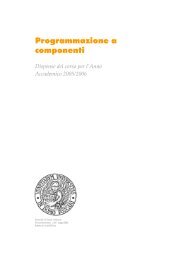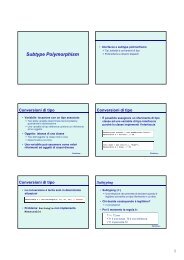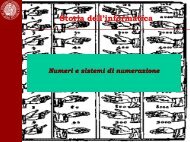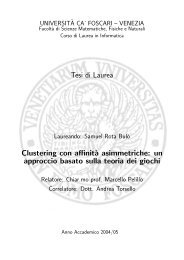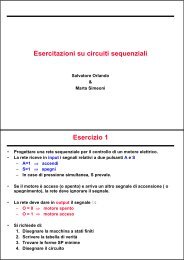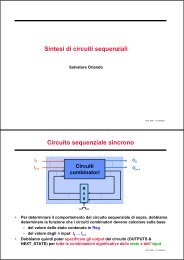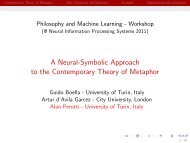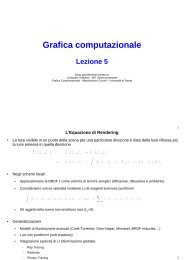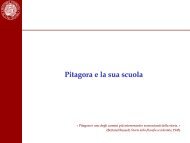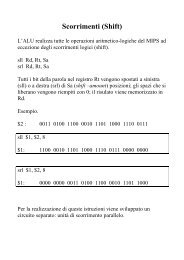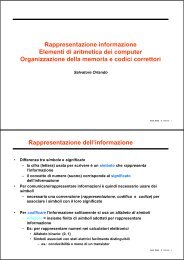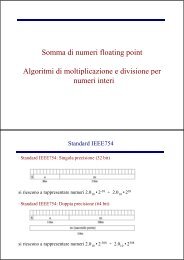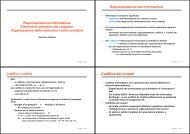Foscari - Dipartimento di Scienze Ambientali, Informatica e Statistica
Foscari - Dipartimento di Scienze Ambientali, Informatica e Statistica
Foscari - Dipartimento di Scienze Ambientali, Informatica e Statistica
You also want an ePaper? Increase the reach of your titles
YUMPU automatically turns print PDFs into web optimized ePapers that Google loves.
I look forward to hearing from you in the near future.<br />
Time expressions typically associated with the present simple are: frequently, often, occasionally, etc.<br />
every day, on Saturdays, each week, once a year.<br />
2 The present simple is not used<br />
a to make suggestions, ask for advice, or offer to do things. Use shall or will instead.<br />
Shall we go out for <strong>di</strong>nner tonight?<br />
Shall I ring you to confirm the arrangements?<br />
I will let you know the results of the tests tomorrow.<br />
b for actions or situations that began in the past and continue into the present. Use the present<br />
perfect instead.<br />
I have lived here for six months. (Not: I live here for six months.)<br />
16 Present continuous<br />
be (are / is / are) + verb + ing<br />
1 We use the present continuous:<br />
a to describe an incomplete action that is going on, now at this moment.<br />
You are rea<strong>di</strong>ng an explanation of the present continuous.<br />
The sun is shining outside.<br />
b to talk about an incomplete action that is going on now, in this present period. Here now has a<br />
wider sense than now, this moment.<br />
We're working on a new project.<br />
The number of people using the Internet is growing constantly.<br />
c to talk about a temporary event or situation.<br />
I usually work in my own office, but today I’m working in Carol's office.<br />
She' s staying in a hotel until she finds a flat to rent.<br />
d in emails and letters to give a less formal and more friendly tone, particularly with verbs such as<br />
write, enclose, attach, look forward to.<br />
I am attaching those photos of the kids I told you about.<br />
I'm really looking forward to seeing you again.<br />
e to talk about future arrangements (see future).<br />
Time expressions typically associated with the present continuous are: currently, now, at the<br />
moment, for a few weeks, in this period, this week, next month.<br />
2 Some verbs are never used in the continuous form. The majority of these are verbs that describe<br />
110



